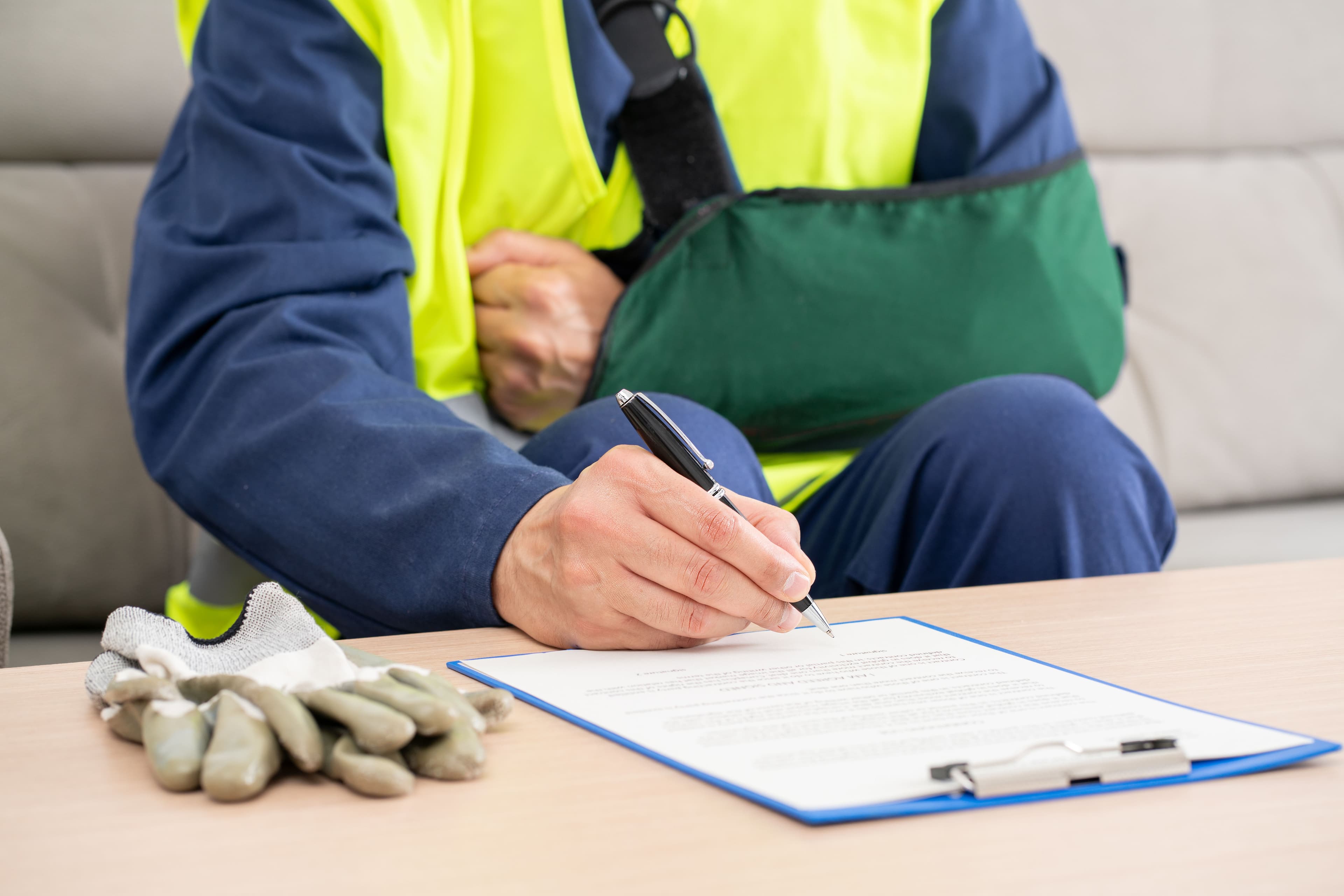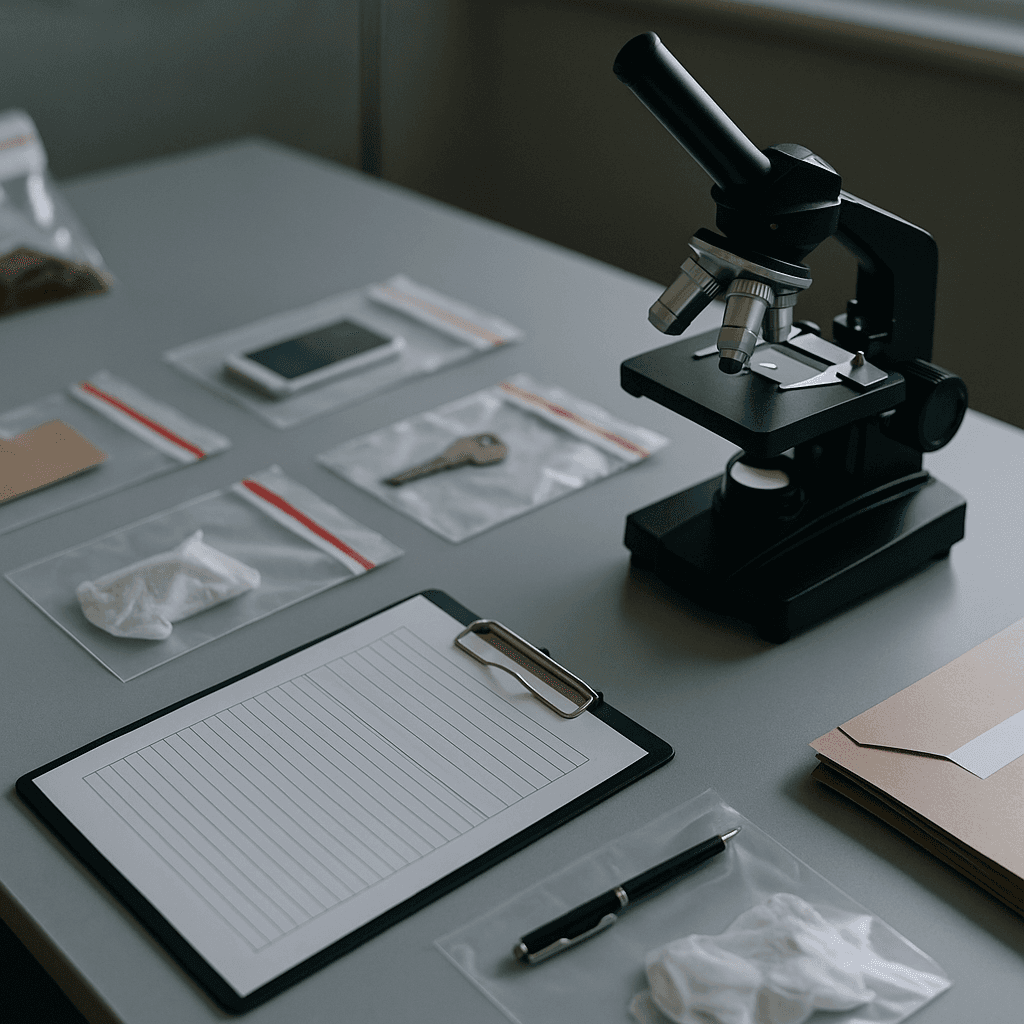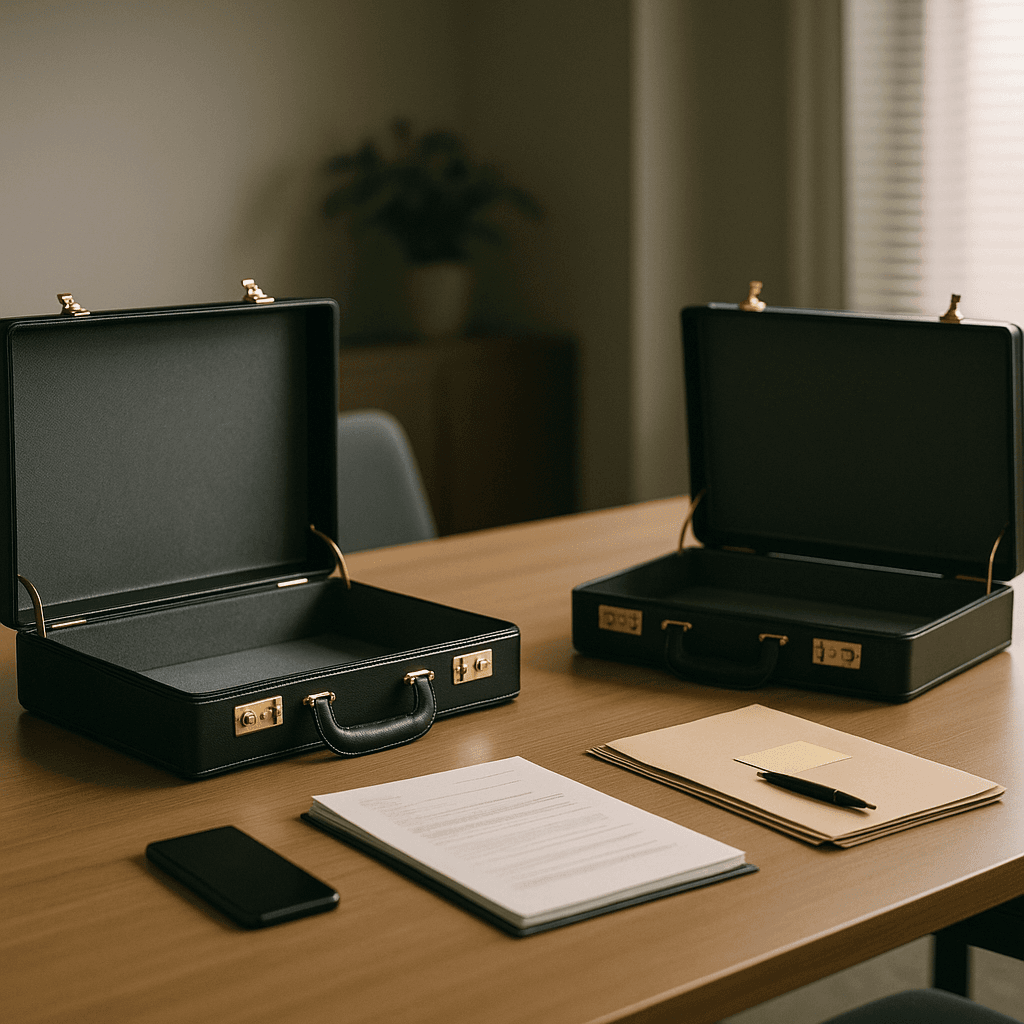
Do You Get Paid If You Get Injured at Work?

You have no choice but to go to work every day, even if doing so puts you in danger. Some jobs are inherently riskier than others. Still, whether you work a hazard-prone job or simply a desk job, becoming injured at work can be extremely disheartening. You may be wondering, “If I get hurt at work, do I get paid?”
The answer is probably yes. You have a few different outlets for seeking compensation after a workplace injury. Speak with a workplace injury lawyer for more information about your eligibility for compensation.
Your Options for Compensation After a Workplace Injury
You may think filing for workers’ compensation is your only way to secure money after a workplace injury. While this is one outlet, it’s not your only option. In fact, claiming workers’ comp may bar you from securing additional compensation another way.
Before you submit any claims for compensation, speak with a workplace injury attorney about your options.
Filing a Workers’ Compensation Claim
Workers’ compensation benefits are available to the majority of workers in the U.S., and in many states, employers are legally required to offer them.
Workers’ comp provides compensation for injuries that occur while an employee is completing their work duties, regardless of who is at fault. This means you may still be covered if you were off-site or driving for work at the time of the injury.
Workers’ compensation operates under a no-fault system. No one claims responsibility for your accident; you simply apply for benefits through your employer’s insurance company. You cannot hold your employer directly liable for your accident if you secure workers’ compensation.
As a result, if you believe your employer was responsible for your accident, you should hold off on filing for workers’ compensation while determining your next steps.
Seek Temporary Disability Benefits
While the criteria for disability benefits vary by state, it usually allows you to compensate lost wages from an illness or injury. You can expect it to pay anywhere between 40% to 70% of your base salary.
Speak to your attorney about whether you may qualify for temporary disability and whether this is the right route for you. You’ll likely secure more compensation another way, but this is a good option to consider if you are having trouble qualifying for other types of compensation.
If your injuries are severe, explore your eligibility for permanent disability.
Hold Your Employer Directly Liable
If you’re asking, “If I get hurt at work, do I get paid?” make sure you understand your employer’s role in the accident. If your employer was directly liable, you may be able to seek compensation through a lawsuit instead of workers’ compensation, potentially allowing you to secure more money.
Your employer may be liable if the worksite violated OSHA guidelines or if your employer’s negligence directly contributed to your accident. This may be true if:
- Your employer failed to provide proper safety gear.
- Your employer failed to maintain equipment regularly to prevent breakdowns.
- You were not allowed to take necessary breaks to avoid fatigue.
Initiate a Third-Party Claim
Another party may have been liable for your accident. If so, you may have the right to claim workers’ compensation and a third-party insurance claim or lawsuit against that party.
Examples of third-party liability may include:
- An equipment manufacturer that produced the equipment incorrectly, leading to a malfunction
- A driver who caused an accident while you were traveling for work
- A cleaning company that failed to place a wet floor sign, causing you to slip and fall at work
Contact our team today so we can fight to help you get the compensation you deserve.
Can You Seek Compensation If a Workplace Injury Was Your Fault?
Regardless of your work-related injury causes, you likely have the right to seek workers’ compensation. You can qualify for workers’ compensation even if the injury was technically your fault.
As a no-fault system, workers’ compensation doesn’t depend on a specific party being responsible for the injury. Still, you may not qualify for workers’ compensation if:
- You deliberately caused your own injury.
- You were horsing around at work when the injury occurred.
- You were doing something outside of your work duties that caused the injuries.
- You were driving to or from work and were not clocked in.
If you’re still unsure whether you qualify, or your employer has informed you that you do not qualify even though you think you should, speak with an attorney about your options.
What Types of Compensation Can You Seek After a Workplace Injury?
If you’re wondering, “If I get hurt at work, do I get paid?” you’re also probably wondering how much you serve to gain from your injuries. The exact value of your case depends on the severity of your injuries, the type of claim you are filing, and whether you settle out of court or proceed to a lawsuit.
For a workers’ compensation claim, you can typically seek medical expenses coverage and wage replacement, but not much else. If you seek a third-party claim or a lawsuit against your employer, you’ll also have the right to pursue non-economic damages, such as:
- Pain and suffering
- Loss of enjoyment of life
- Emotional distress
- Loss of consortium
If your employer or another responsible party acted recklessly to cause your accident, you may even qualify for punitive damages. These come from the liable party’s bank account to punish them for their wrongful behavior.
Free Consultation 24/7, call (844) 343-9609
Find Your Workplace Injury Attorney Through Accident Hotline
“If I get hurt at work, do I get paid?” Typically yes, but you need to approach your case correctly to maximize your compensation. An experienced workplace injury attorney can help you understand your right to file a claim, assist with reporting workplace injuries, help you determine the right type of case to file, and more.
Are you looking for a workplace injury attorney near you? Accident Hotline can connect you with a vetted attorney in your area. Contact us today at (844) 343-9609 for a free consultation and a referral to an attorney experienced with workers’ compensation claims.
For a free consultation, call (844) 343-9609
Blog Posts:

The Role of Expert Witnesses in Injury Litigation
Why Expert Witnesses Matter in Personal Injury Cases In personal injury litigation, facts alone are often not enough. While evidence like medical records, photographs, and witness statements paint part of the picture, juries and insurance companies frequently need context and explanation to understand the full scope of an injury and its impact. This is where expert witnesses play a pivotal role. Expert witnesses are professionals—often doctors, engineers, economists, or accident reconstruction specialists—who provide testimony based on their specialized knowledge. Their objective is not to advocate for one side but to clarify complex issues that require professional interpretation. In many cases, their opinions help bridge the gap between evidence and understanding, making them critical to achieving fair compensation.

How Insurance Companies Evaluate Injury Claims
How the Evaluation Process Really Works When you file a personal injury claim, the insurance company begins a process that is anything but simple. Behind every offer or denial, there's a calculated evaluation designed to protect their bottom line. Insurers use data-driven methods, past claim outcomes, and internal guidelines to assess how much—if anything—they believe your case is worth. The goal of the insurance adjuster is straightforward: to settle your claim for as little as possible while closing the file quickly. They'll review your medical records, accident details, and even statements you've made to determine liability and damages. The more organized and detailed your claim presentation, the harder it is for them to undervalue it.

The Dangers of Handling a Personal Injury Case Without Legal Help
Understanding What's at Stake After an accident, it's natural to want to resolve things quickly. Medical bills begin piling up, your work may be disrupted, and insurance adjusters often seem eager to "help." Many people believe they can handle their personal injury claim on their own—especially if the situation seems straightforward. But personal injury law is complex, and even minor missteps can lead to significant financial loss. Without professional guidance, you may underestimate your claim's value, miss critical deadlines, or make statements that insurers later use against you. The legal process is designed to protect both sides, and insurance companies have experienced professionals working to limit payouts. Without an equally skilled advocate on your side, you're at a clear disadvantage. That's why consulting a personal injury lawyer early in the process is often the difference between fair compensation and a costly mistake.

When Should You Switch to a Different Injury Lawyer?
Knowing When It's Time for a Change Choosing the right attorney after an accident is one of the most important decisions you'll make in your recovery journey. However, not every lawyer-client relationship is a perfect fit. Sometimes, despite your best efforts, you may realize that your current representation isn't meeting your expectations. Whether it's poor communication, lack of progress, or a sense that your case isn't being handled effectively, recognizing when to switch attorneys can make all the difference in the outcome of your claim. Switching to a new personal injury lawyer doesn't mean starting over from scratch—it means taking control of your case and ensuring it receives the attention and effort it deserves. Understanding what to expect from your legal representation can help you identify the warning signs that it might be time for a change.
Get an agent on the line in seconds
Responsive
Legal Assistance
Our personal injury attorneys advocate for the funds necessary to cover bills, secure medical treatment, recoup lost wages, and provide compensation for your pain and suffering.
Are you facing unfair treatment from the insurance company?
Do you know the value of your case?
Is the insurance company asserting that the accident is your responsibility?

We'll get back to you ASAP.
Get Your Free Consultation
You Pay Nothing Unless We Recover Compensation For You
